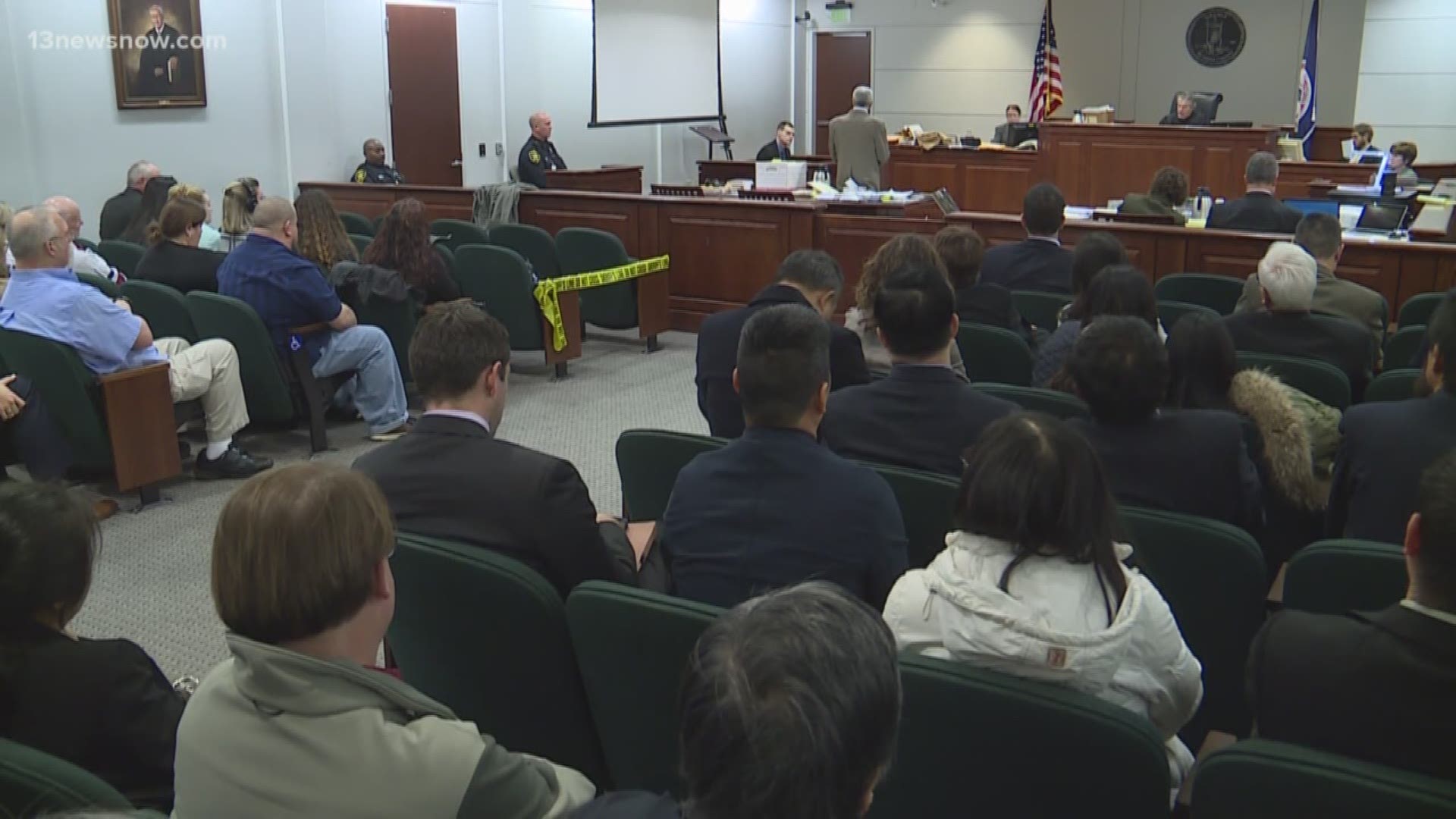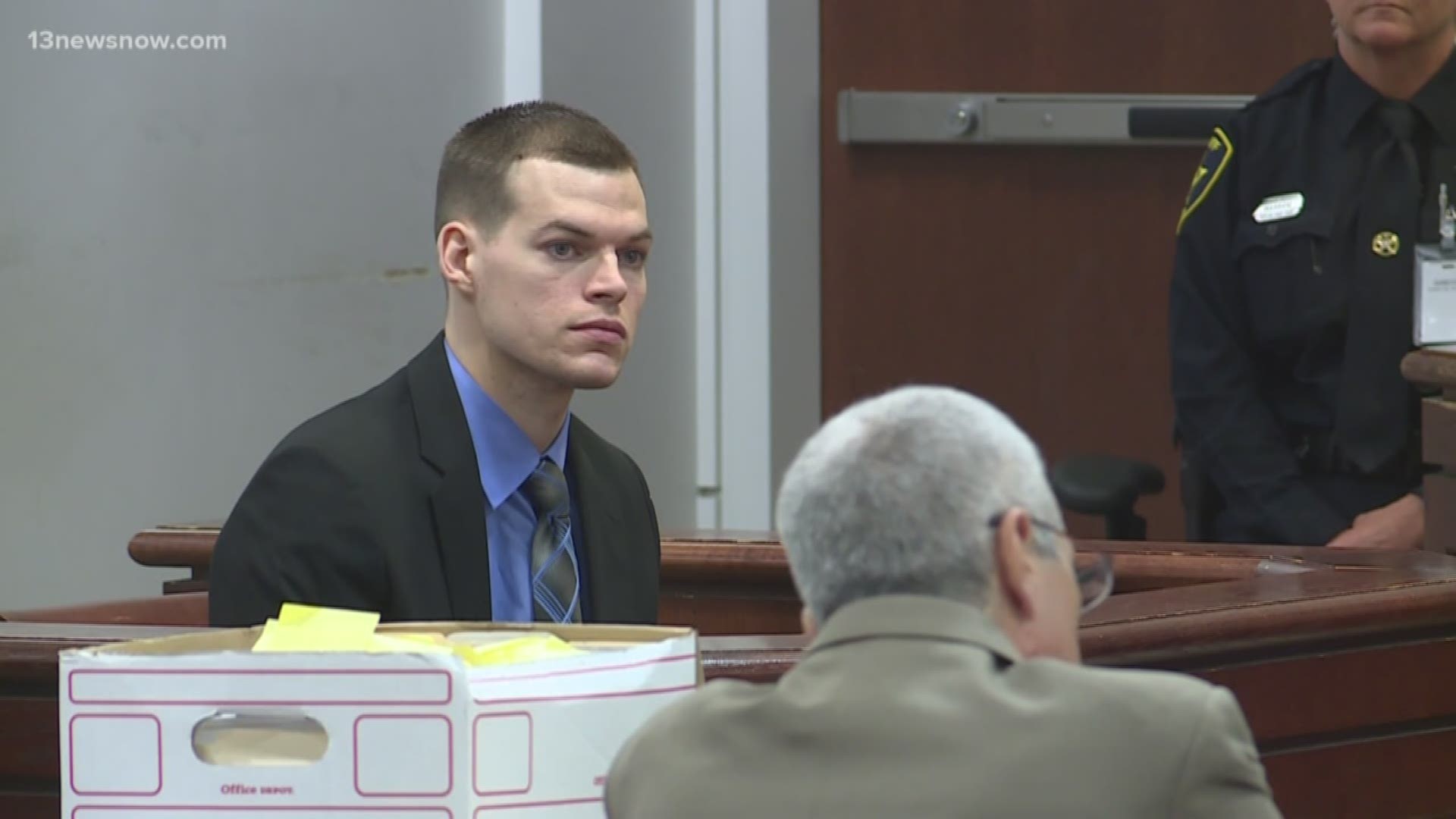CHESAPEAKE, Va. — A jury found a former security officer guilty of second-degree murder in the death of a man who was playing Pokémon Go in 2017.
Johnathan Cromwell was originally charged with first-degree murder in the shooting death of Jiansheng Chen. Chen was playing Pokémon Go in his minivan when Cromwell confronted him.
Deliberations picked up Friday morning after court adjourned for the day Thursday, the day that the jury received the case.
Jurors notified the court a verdict had been reached shortly after 3:30 p.m. They deliberated for more than ten hours.
Supporters of Chen were still emotional after the verdict was read.
"You can't just kill people. That's a life. That's a life!" said Jenny Sung, a family friend.
Cromwell's sentencing is scheduled for Monday. The 23-year-old faces up to 40 years in prison.
"The case is still underway, but I will be back Monday morning to fight as hard as I can for Johnathan like we fought the last two weeks," said Andrew Sacks, Cromwell's attorney.
DAY 7
Closing arguments are underway, as the case will soon head to the jury.
Prosecutors on Wednesday harped on a key piece of evidence: surveillance video. They played it for the jurors again, where they heard the 10 gunshots Cromwell fired at Jiansheng Chen two years ago.
They said the excessive amount of shots, the position of Chen's van, and the fact his foot was on the brake contribute to this being a murder.
Cromwell's defense attorney Andrew Sacks again called it a case of self-defense when Chen allegedly tried to run his client over in that two-ton van. He said Cromwell had full authority to investigate and protect himself by shooting.
Sacks even tried to plan multiple seeds of doubt for the jury, trying to discredit the grandfather was playing Pokémon Go at the time by referencing phone records.
The prosecution will have one last chance on Thursday to refute the defense's final argument.
Then the case will go to the jury, where they can choose to convict Cromwell of first or second-degree murder or manslaughter or acquit Cromwell of all charges.
DAY 6
Johnathan Cromwell took the stand in his own defense on Tuesday morning. His attorney, Andrew Sacks, asked him questions, detail-by-detail on what happened on that night in 2017.
Cromwell said he was in the Riverwalk clubhouse that night, and suspected Jiansheng Chen of trespassing. When he confronted the 60-year-old grandfather, Cromwell said he recognized Chen from a prior run-in he was barred from the property for trespassing.
The security guard then testified that Chen put his minivan in reverse and then acted as if he was going to run over him.
Cromwell said he had no option but to shoot Chen because he could not get out of the path of the van.
Cromwell told the jury that months prior to the shooting, his little brother had been killed in a car accident and that this was going through his mind when he saw Chen's vehicle approaching and made the decision to open fire.
Cromwell testified that at the end of the day, he did not want his mother to get another call that one of her sons had died.
Prosecutors cross-examined Cromwell by asking him why he did not call police before using deadly force in the situation. A superior to the guard testified that he trained officers to call the police if they figured things might get out of hand.
They questioned if Chen was actually attempting to run Cromwell over because of the positioning of his vehicle. Chen had his foot on the brake when first found dead in his minivan, Cromwell testified.
Prosecutors also asked Cromwell about his question to detectives regarding the "grouping" or pattern of his gunshots moments after the shooting. He explained that shooting at ranges was a "hobby" of his and he was asking about accuracy because he was worried about any possible stray bullets in the area.
Cromwell ultimately expressed remorse for the shooting, which he told a detective after the shooting. He again said he still had "extreme" remorse today.
DAY 5:
The prosecution rested its case Monday morning, and now Cromwell's defense will call witnesses to testify.
DAY 4:
Prosecutors continued calling witnesses to the stand who gave expert testimony surrounding Chen's autopsy report and the firearm Cromwell used in the shooting.
Most questioning was directed toward Homicide Detective Robert Hatchell and a recorded interview he conducted with Cromwell.
The security guard is heard confessing to shooting Chen in self-defense. He said the grandfather looked at him right in the eye and heard commands before having to fire several shots.
Hatchell said after the interview, Cromwell asked about the "grouping" of his shots, which he interpreted as the shot pattern.
Defense attorney, Andrew Sacks, said his client asked about the issue because he was worried about possible stray bullets.
The prosecution is expected to call one more witness Monday before resting its case.
DAY 3:
The prosecution and defense both laid out their cases during opening statements.
Family of the victim, Jiansheng Chen, wept as prosecutors recounted the moment the grandfather was shot outside the River Walk Clubhouse in Chesapeake.
The case against Cromwell took dramatic turns with prosecutors calling on police for testimony and a neighbor's witness account to help prove murder.
Police body camera video was shown to jurors of the moments after the incident. Footage showed Chen's front windshield riddled with bullet holes and a lifeless body in the driver seat.
Prosecutors called a neighbor to the stand who said she heard multiple gunshots from her home. A surveillance camera captured the sound of ten rapid-fire shots and Cromwell yelling "Stop the car!" before firing his gun.
Defense attorney, Andrew Sacks, laid out his argument that Cromwell was acting in self-defense after Chen tried to allegedly tried to run him over.
Police testified that when they arrived on scene, Cromwell was polite and calm. Body camera footage shows him explaining how Chen and one of his friends were known trespassers on the property.
Sacks said he plans to prove there were more instances of trespassing by Chen in the past and that the 60-year old had a habit of eluding authority.
Attorneys spent the first two days of the trial narrowing down a pool of 80 jurors to just 14.


